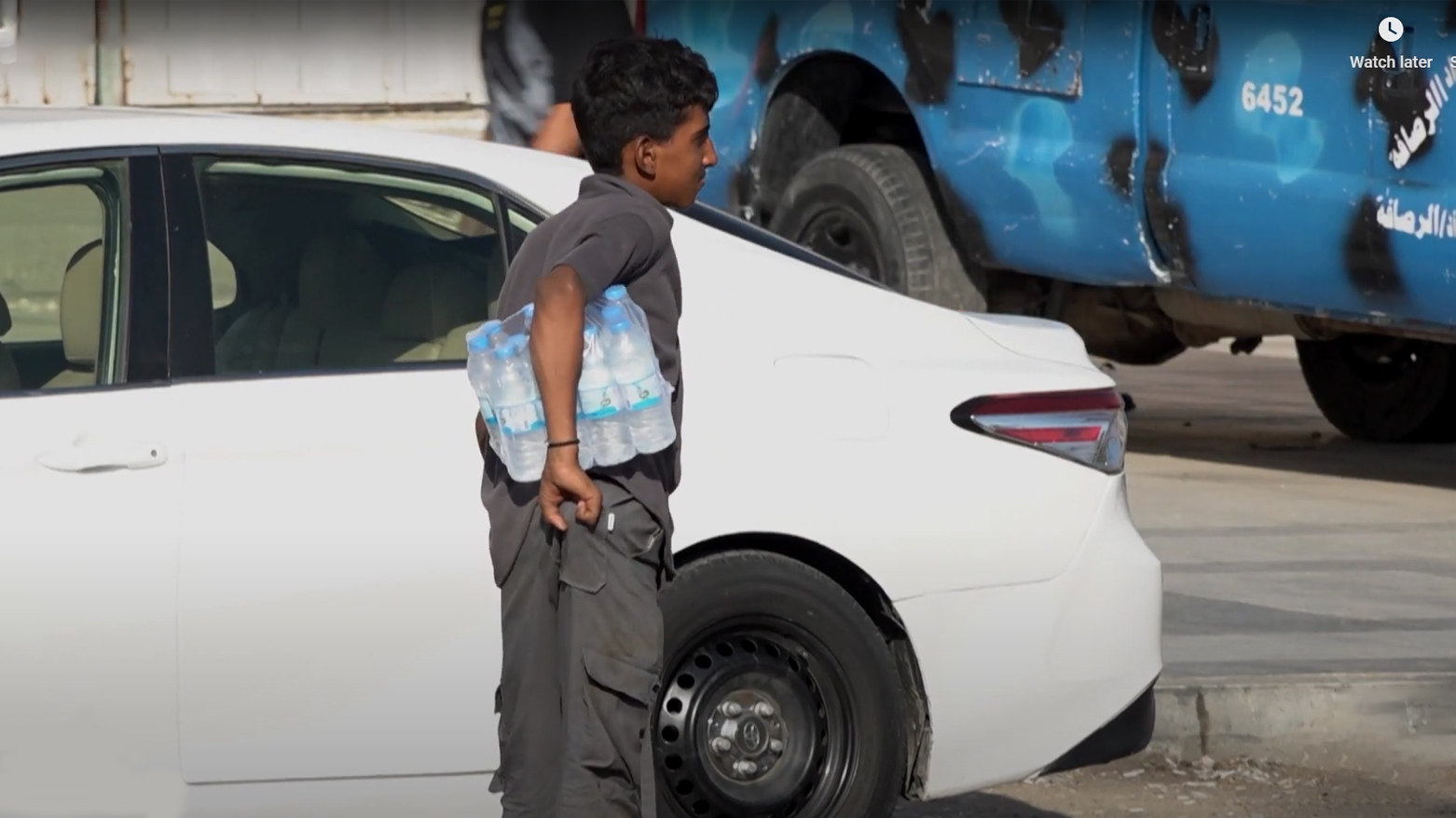Rising Tide of Begging in Baghdad: Children and Women Bear the Brunt of Poverty and Inattention
Baghdad's streets see alarming rise in begging – from kids cleaning windshields to women & vendors struggling to survive. No official stats, but estimates suggest 3,000+ beggars. Laws exist but aren’t enforced. "I make 20k dinars/day, chased by police," says one water seller.

By Ahora Qadi
ERBIL (Kurdistan24) – The streets of Baghdad are witnessing a visible surge in begging, a long-standing social issue that has now assumed new and troubling dimensions. Once limited to conventional images of outstretched hands and silent pleas, the phenomenon has diversified—ranging from gum and candy sellers to boys cleaning car windows at traffic intersections. These scenes, especially during peak hours, have become a daily fixture in the Iraqi capital.
While these practices vary in appearance, most fall under the umbrella of street begging, which continues to grow amid rising unemployment, entrenched poverty, and the steady erosion of social safety nets.
“Selling Water to Survive”
Issam, a young man in his twenties, sells bottled water in the sweltering Baghdad evenings to make ends meet.
“I start working at 4 PM and stay out until midnight or sometimes even later,” he told Kurdistan24. “I barely make 20,000 dinars a day, and yet I’m chased by police constantly. I even tried changing locations, but nothing changed.”
For many like Issam, street vending is less a choice and more a survival mechanism. Despite being seen as unlawful, their work is a last-ditch effort to earn a living amid the absence of viable employment opportunities.
Women and Children at the Center of the Crisis
Legal activist Israa Al-Khafaji warns that women and children are increasingly caught in the web of this expanding crisis.
“We’re seeing more and more children and women out on the streets,” Al-Khafaji said. “Even though Iraqi law criminalizes begging, children are considered ‘homeless minors’ under the law, which requires different handling.”
She refers to Iraq’s Juvenile Welfare Law No. 76 of 1983, specifically Article 30, which criminalizes incitement to beg and mandates penalties of up to one year in prison. “But to date, we haven’t seen any real activation of this law,” she lamented.
No Official Numbers—Only Worsening Conditions
Despite the scale of the crisis, Iraq lacks any official statistics on the number of beggars across the country. Some civil society organizations estimate the figure has already surpassed 3,000 individuals—and likely far more, given the lack of concrete government strategies to curb the practice.
Observers say the rising prevalence of begging is a stark indicator of Iraq’s stalled development, deepening inequality, and a public sector incapable of protecting its most vulnerable. If left unaddressed, they warn, the consequences will be severe, particularly in the medium term.
Without urgent reforms, targeted welfare programs, and real employment strategies, the proliferation of street begging threatens to become not just a symptom but a structural feature of Iraq’s fractured socio-economic landscape.